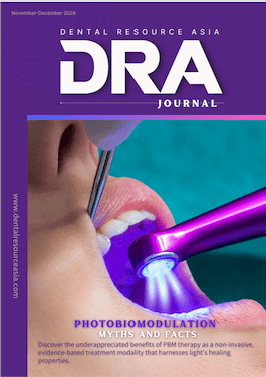Taiwan: A letter of intent signed between the medical profession, medical industry, healthcare authorities and academic institutions, is calling for increased awareness and resources to promote the swallowing and chewing functions among the elderly.
The document was signed by: Changhua County Yuanrong Medical System; Kaohsiung Xiaogang Hospital; Minhui Medical College; and Zhongzhangrongjia; along with the larger industry, governmental bodies and various academic institutions.
“Many People are unaware that the worse a person’s chewing ability, the easier it is to get dementia,” said Zhang Keshi, President of Yuanrong Medical System.
“The function of chewing and swallowing is related to the quality of life. Only in this way can elders receive balanced nutrition and avoid dementia.”
The elderly residents of Zhongzhangrong province are the main care recipients identified by this initiative.
The rehabilitation department and the dentistry department will be working alongside the Masticatory and Swallowing Function Reconstruction Center of Kaohsiung Xiaogang Hospital.
Teachers and students of related departments of Minhui will also be involved with the goal to rebuild the “swallowing degeneration” function of the elderly. In addition to treating the swallowing and chewing problems of the elderly, the main objective of the departments is to achieve early prevention and treatment.
A recent study found that 1 in 10 elderly people over the age of 65 in Taiwan may have a swallowing disorder.
“Many elderly people are prone to choking after eating for too long,” said Chen Guanlin, director of the Rehabilitation Department of Yuanrong Medical System.
“The food residue often triggers a “swallowing regression”, sometimes making them choke and some even develop aspiration pneumonia.”
As a result, Chen added, the elderly may also gradually dislike chewing due to the instability of their teeth, and slowly replace solid with liquid food.
“Dementia, poor masticatory function and dementia may form a vicious circle, which can only be disrupted through interdisciplinary methods including rehabilitation, dentistry, nutrition, and speech therapy,” he said.
The swallowing problem can also be aggravated by dementia, according to Xu Zhewei, a speech therapist at Yuanrong Medical System
“It can cause “apraxia of swallowing” due to cognitive function deterioration, including agnosia and Alzheimer ‘s disease,” he added.
“This will increase the elderly patient’s reluctance to accept eating by mouth, or even refusing to anything touch their mouth, which can also cause problems with oral hygiene.”
The information and viewpoints presented in the above news piece or article do not necessarily reflect the official stance or policy of Dental Resource Asia or the DRA Journal. While we strive to ensure the accuracy of our content, Dental Resource Asia (DRA) or DRA Journal cannot guarantee the constant correctness, comprehensiveness, or timeliness of all the information contained within this website or journal.
Please be aware that all product details, product specifications, and data on this website or journal may be modified without prior notice in order to enhance reliability, functionality, design, or for other reasons.
The content contributed by our bloggers or authors represents their personal opinions and is not intended to defame or discredit any religion, ethnic group, club, organisation, company, individual, or any entity or individual.

